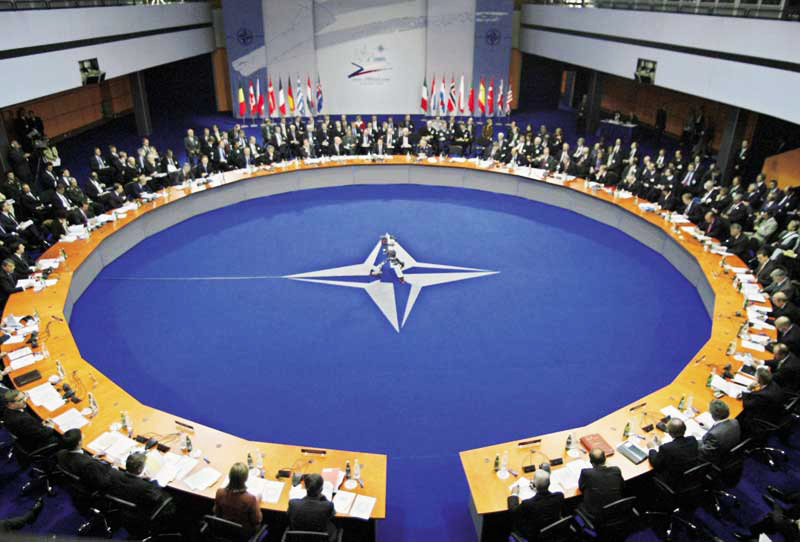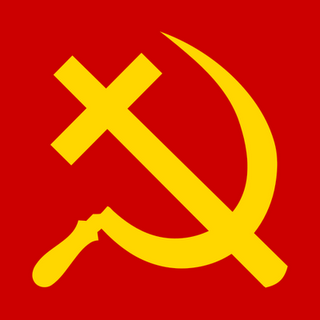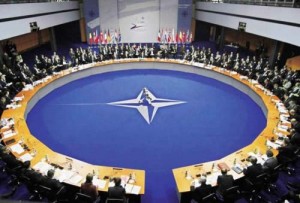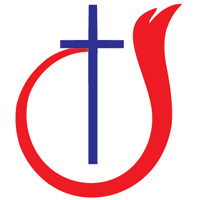Bulgarian Evangelical Churches in America
The annual conference of Bulgarian Evangelical churches in North America was held May 25-28, 2007 at the Christian Life Church in Chicago’s suburb Des Planes where the largest number of Bulgarian immigrants is locating. This year the event was hosted by the Bulgarian Evangelical Church of God “New Life” pastored by Stan Tanev. The conference gathered Bulgarian immigrants from all parts of America. The churches from Minneapolis, Dallas, Huston and Los Angelis participated. Representatives from New York City, Tennessee and Las Vegas reported growth of newly started Bulgarian congregations in their respective areas. Special guest of the conference was Martha Zaplishny Jackson, daughter of the first Pentecostal missionaries to Bulgaria, Rev. Dionesey and Olga Zaplishny.
Bulgarian Evangelical Church of God in Chicago
This is the story of the first Bulgarian Church of God established in the Untied States. The church was started in the building of the Narragansett Church of God in Chicago which at the time was pastored by Rev. Sean O’Neal. Led by a dynamic cross-cultural vision, the congregation expanded in several ethnic branches. Using a strategy home mission’s approach the church soon became an important religious center for the Chicago metro.
In December 1994, the Lord led me to participate in a step-mission trip to Chicago organized by the students of East Coast Bible College. As preparations were made we learned of several Bulgarians who attend the Narragansett Church of God in Chicago. Unfortunately, they had been hurt by some Bulgarian ministers who had visited them before and were very suspicious of any organized church work. Yet, I was introduced to them and was able to minister to them in several services.
By the end of our mission trip Pastor O’Neal invited me to join him in his attempt to begin a Bulgarian church in the city. Although at this time Chicago was a center for more than 12,000 Bulgarian immigrants no one had attempted to start a Bulgarian Protestant church.
After much prayer I arrived in Chicago on May 27, 1995. In the remaining part of May we created a strategy to reach as many Bulgarians as possible. This included visitation of families, attending Bulgarians social functions, and establishing contact with several Bulgarian organizations active in the Chicago area such as the Bulgarian Club and the Orthodox Church. In June we executed this plan with much success. During this time I lived with a Bulgarian family and slept on the balcony of their apartment on Jackson Boulevard. Often, I had to spend the night in the church building as well. But the most important thing was to carry the vision to the end.
On July 9, 1995 the first organized Bulgarian Church of God was established in Chicago city. I was privileged to preach on the subject of forgiveness as 10 Bulgarians attended. Little I knew that in the years to come much forgiveness will be needed as the church will be torn apart by deep bitterness, personal ambitions, frequent confusion and lack of mission. Yet, while the works of men fails, the work of God remains.
By the end of the summer of 1995 the Bulgarian Church in Chicago had grown to 42 people. Thanks to the faithful and united work of Bulgarians and Americans in the fall of the same year the number was 64. On October 7, 1995, I was able to visit the church in Chicago again and present it to the National Overseer of the Bulgarian Church of God, Pastor Pavel Ignatov who visited the church for the first time. The church became not only the first officially registered Bulgarian Pentecostal congregation in the United States, but also an important social and educational center able to minister to the 100,000 Bulgarians that live in the Great Lake region today.
Called to another mission, I left Chicago on July 30, 1995. The church bulletin upon my departure under Farewell and Appreciation read: “Today we are saying thank you to Dony for a job well done this past summer. He has served our church faithfully, and has been a tremendous blessing to Narragansett Ministries. Immediately following worship this morning, there is a dinner in Dony’s honor in the fellowship hall. And everyone is invited to attend.”
The church congregation presented me with a plaque that represented my efforts and work in Chicago. But for me, this plaque represents much more. It represents the prayers and the vision of many who are continuing the work today, establishing and leading Bulgarian churches around the world to providing pastoral care for many who have left the homeland in search for a better life. To these ministers goes my personal token of appreciation and thanks, “Well done thou good and faithful … “
Bulgarian Pentecostals
 Fifteen years after the fall of the Berlin Wall, the Bulgarian Protestant movement claims over 100,000 members. This number is almost ten times higher than a 1975 German study which presented proof of approximately 13,000 “known” Protestants in Bulgaria. In the 1980s, this number had grown to 55,000, as this was the time when many Western missionaries were able to visit Bulgaria and gather information about the underground churches outlawed by the Communist Regime.
Fifteen years after the fall of the Berlin Wall, the Bulgarian Protestant movement claims over 100,000 members. This number is almost ten times higher than a 1975 German study which presented proof of approximately 13,000 “known” Protestants in Bulgaria. In the 1980s, this number had grown to 55,000, as this was the time when many Western missionaries were able to visit Bulgaria and gather information about the underground churches outlawed by the Communist Regime.
Although international reports confirmed the existence of over 100,000 Protestants in Bulgaria as early as 1994, the Bulgarian National Statistical Institute counted only 42,000 Protestant believers in Bulgaria for the 2002-2003 National Census. This number was detested recently by Dr. Stephen Penov, a professor at the Sofia University and a member of the Bulgarian Academy of Science, who has served as a Parliament expert on human rights and faith confessions. Dr. Penov stated that the members of classical Protestant denominations in Bulgarian exceeded 100,000 with over 60,000 identified as classical Protestants and a membership in the new Protestant denominations of approximately 50,000. During the past fifteen years, Bulgaria has experienced an ongoing Pentecostal revival. Therefore, it is not a surprise that over eighty percent of Bulgarian Protestants are Pentecostal or claim Pentecostal experience.
Protestant work on the Balkan Peninsula began in the 1800s when British and American missionaries were allowed to enter the Ottoman Empire. In the 1820s, the British Bible Society developed a Protestant translation of the Bulgarian Bible, which was completed and published in Constantinople in 1871. During this same period, various Protestant denominations began mission work in Bulgaria, among which were Congregationalists (1856), Methodist (1857), Baptists (1865) and Seven Day Adventists (1891). In 1871, the first Bulgarian Protestant Church was founded in the town of Bansko. By the time Bulgaria was liberated in 1878 and became an independent Balkan state, Protestantism was well established in the Bulgarian culture.
Pentecostalism was introduced in Bulgaria in 1920 as Ukrainian immigrants Zaplishny and Voronaev preached in the Congregational church at the Black Sea port city of Bourgas, where several were baptized with the Holy Spirit. This event marked the beginning of Bulgarian Pentecostalism.
In the next decade, the movement had spread throughout the country. The establishment of a consistent national structure occurred under the leadership of Nikolai Nikolov. The new denomination was formally recognized as the Union of the Evangelical Pentecostal Churches in Bulgaria, at a national assembly on 28-31 March, 1928. The organization, also known as the Pentecostal Union, was affiliated with the Assemblies of God denomination.
Legally, the newly formed organization was required to register with the Bulgarian government. This caused a great deal of controversy and division. A conservative Pentecostal group, with congregations located mainly in Northern Bulgaria, emerged from the split and adopted the name, Tinchevists, after the name of the leader Stoyan Tintchev. The Tinchevists, who are often called Northern Brothers due to the fact that most of their congregations were located in Northern Bulgaria, later became commonly known as the Bulgarian Church of God (lit. Bulgarian God’s Church).
The split between the Pentecostal Union and the Church of God was mainly due to leadership instability and internal organization disagreement. Unfortunately, due to the historical developments which followed, true attempts to reunite both Pentecostal wings did not take place even after the original leaders were replaced.
In 1944, the Communist Revolution took place in Bulgaria. In 1949, Communist authorities tried and convicted fifteen protestant leaders on false charges of treason and espionage. The division among Bulgarian Pentecostals continued during the Communist Regime. The Pentecostal Union pursued legal existence by registering with the Communist state. This action led to the government’s interference with church business and the implanting of secret agents within the denomination’s structure.
The Bulgarian Church of God, on the other hand, chose to remain underground and was severely persecuted by the authorities. Archives report that in 1974, the Bulgarian Church of God had only 600 members nationwide. This number grew to 2,000 members with congregations in 25 cities by 1981 and doubled by 1986 when the denomination was affiliated with the Church of God (Cleveland, TN).
At the same time, the Bulgarian Pentecostal Union had approximately 10,000 members and when the Berlin Wall fell, the denomination entered the Pentecostal revival that swept the country. In the decade that followed, the Pentecostal Union multiplied its congregation to 500 with over 50,000 members and adherents. A recent interview with Ivan Ivanov, the student pastor of the Pentecostal College in Sofia, indicated that the membership of the Pentecostal Union might have experienced a decline since 2002.
Meanwhile, the Bulgarian Church of God continued to grow reporting over 32,000 members with close to 400 congregations in 2001. Its work among the ethnic minorities in the country has resulted in the emergence of large Roma congregations like the ones in Samokov with 1,700 and in Razlog with 450 members.
It is reasonable to ask the question why is Pentecostalism so attractive to Bulgarian culture in the beginning of the 21st century? How is Pentecostalism responding so well to the need for faith within the postcommunist Bulgarian society? What is the reason Pentecostalism has spread so rapidly in the postcommunist age? Is Pentecostalism simply filling a spiritual gap or is it successfully responding to postmodern thinking?
The answers to the above questions are found in Pentecostal theology, which claims the “five-fold Gospel.” The results of a recent survey of one hundred randomly selected Bulgarian Protestants asking about the fundamentals of their faith is shown in the following table:
| Question | Yes | No |
| Does a person have free will? | 78% | 22% |
| Can a person choose to be saved or not? | 75% | 25% |
| Must a person accept Jesus Christ as a personal Savior in order to be saved? | 97% | 3% |
| Can a person lose his/her salvation? | 75% | 25% |
| Is the use of alcohol sin? | 60% | 40% |
| Can a person be saved without being baptized in the Holy Spirit? | 72% | 28% |
| Are you baptized with the Holy Spirit? | 63% | 37% |
| Have the spiritual gifts described in the Bible ceased? | 10% | 90% |
| Are there apostles today? | 64% | 36% |
| Do you go to church each week? | 73% | 27% |
| Do you pray daily? | 88% | 12% |
| Do you read the Bible daily? | 77% | 23% |
| Do you fast more than once a week? | 35% | 65% |
The last characteristic is prompted by the obvious fact, that where two or three Bulgarian Protestants agree, one disagrees with them. It is for future researchers to determine if this is a reflection of Bulgarian cultural mentality, suspicion remaining from the Communist Regime or simply Pentecostal experiential curiosity with existential need for opposition of social norms even within itself.
Fortunately, Bulgarians remain in almost complete agreement on issues such as the person and work of Jesus Christ in the salvific mission of God and the importance of the Holy Spirit in the mission of the church. Perhaps, these are the points of agreement which future Bulgarian Protestants should use to build unity and construct strategies for the future development of the movement. Because these also serve as the cornerstone of Pentecostal doctrine and practice, a movement toward unity within the Bulgarian Protestant movement should be initiated by Bulgarian Pentecostals. However, before such initiation can be realized, Pentecostals must reach a balance between their numerical advantage and their social action.
NATO Top General “Pleased” with Bulgarian Military Bases
 NATO’s Supreme Allied Commander Europe (SACEUR) and commander of American troops in Europe General James Jones has been impressed by the qualities of the Bulgarian bases and infrastructure offered to the US troops, reads a letter, addressed to the Bulgarian Chief of Army Staff General Nikola Kolev.
NATO’s Supreme Allied Commander Europe (SACEUR) and commander of American troops in Europe General James Jones has been impressed by the qualities of the Bulgarian bases and infrastructure offered to the US troops, reads a letter, addressed to the Bulgarian Chief of Army Staff General Nikola Kolev.
General Jones also says he is ready to present and to uphold the US’ use of the bases before the competent authorities in Washington, the Bulgarian Defense Ministry press center informed Tuesday. On Friday the Defense Minister Nikolay Svinarov has announced that the US troops are to deploy to three new bases in Bulgaria. Negotiations are nearing the finish line and are expected to be wrapped up in March, Minister Svinarov has said.
Last month NATO’s General James Jones made a trip to Bulgaria and Romania, where the US were to choose from four of five locations for the prospective military sites in each country. The facilities are to be used by Army, Air Force, Navy or Marine units.
The Bulgarian Underground Church
 The modern day Pentecost began in Bulgaria in the 1920s as Ukrainian immigrants Zaplishny and Voronaev preached in the Congregational church of Bourgas where several were baptized with the Holy Spirit. In the late 1920s a conservative Pentecostal group emerged and formed the union called the Church of God. After the 1944 Communist Revolution in Bulgaria it continued its existence as an underground organization and was severely persecuted. In 1986, the Bulgarian Church of God joined the Church of God (Cleveland, TN). A national revival followed the fall of the Berlin Wall in which hundreds of thousands of people have been touched by the power of God. Today, the Bulgarian Pentecostal Movement claims over 100,000 members.
The modern day Pentecost began in Bulgaria in the 1920s as Ukrainian immigrants Zaplishny and Voronaev preached in the Congregational church of Bourgas where several were baptized with the Holy Spirit. In the late 1920s a conservative Pentecostal group emerged and formed the union called the Church of God. After the 1944 Communist Revolution in Bulgaria it continued its existence as an underground organization and was severely persecuted. In 1986, the Bulgarian Church of God joined the Church of God (Cleveland, TN). A national revival followed the fall of the Berlin Wall in which hundreds of thousands of people have been touched by the power of God. Today, the Bulgarian Pentecostal Movement claims over 100,000 members.
However, this was hardly the case through the years of persecution when the Bulgarian Church of God refused to register with the Communist state and remained underground for over 45 years. Recently published archives from that era show that the Bulgarian underground church grew slowly during the Communist regime experiencing virtually constant crises in leadership and structure. At the same time the government aggressively attempted to penetrate and influence the organization of the church in order to revert its growth.
One of the earliest archive documents from that era is a 1974 study which reported that the Bulgarian Church of God had 600 members nationwide. By 1981, the membership had grown to over 2,000 members with congregations in 25 cities. The congregation in the capital Sofia had 100-150 members, but grew to over 200 by the end of 1982. At the same time, the Bulgarian Pentecostal Union (registered with the government and affiliated with the Assemblies of God) had approximately 10,000 members.
A detailed list of churches and members was kept in government archives as the secret service was ordered to watch the underground church closely. The agent’s logs from that time show approximately 1,000 known members. This number is only a fraction of the actual membership, which at large remained underground and hidden from the eyes of the agents.
The pressure from the secret service was not able to stop the growth of the underground church. By 1985, the Bulgarian Church of God had grown to 3,000 members nationwide while doubling the number of congregations to over 50. Two years later this number was 4,000 and continued to grow as the central church in the capital Sofia had 600 members and several churches (like the ones in Rouse and Gabrovo) had congregations over 200. In 1989, the Communist regime collapsed and Bulgaria began its journey on the road of democracy. In 1990, the Bulgarian Church of God received government recognition as an official denomination representing over 5,000 nationwide to become the fastest growing Bulgarian church with over 30,000 members today.
Newsweek: Bulgarian Ski Resorts Trendiest in Eastern Europe
 Bulgaria boasts Eastern Europe’s most fashionable resorts, says an article in the January 14 Newsweek magazine issue. The magazine points out the opportunities to spend a holiday at Bulgaria’s top ski resorts like Borovetz and Pamporovo at low prices, which are a fourth of what tourists would pay in France’s or Switzerland’s winter resorts. “There has been a massive increase in the popularity in skiing in Eastern Europe,” says Chris Rand of the Britain-based tour company Balkan Holidays. EUR 150 million have been invested in Borovetz to make it a “modern European resort” with an additional 80 kilometers of family-friendly runs, Newsweek says.
Bulgaria boasts Eastern Europe’s most fashionable resorts, says an article in the January 14 Newsweek magazine issue. The magazine points out the opportunities to spend a holiday at Bulgaria’s top ski resorts like Borovetz and Pamporovo at low prices, which are a fourth of what tourists would pay in France’s or Switzerland’s winter resorts. “There has been a massive increase in the popularity in skiing in Eastern Europe,” says Chris Rand of the Britain-based tour company Balkan Holidays. EUR 150 million have been invested in Borovetz to make it a “modern European resort” with an additional 80 kilometers of family-friendly runs, Newsweek says.
NATO Top Commander Eyes Bulgarian Contenders US Bases
 US Airbase to be Built in the Village of Bezmer in the Yambol Region
US Airbase to be Built in the Village of Bezmer in the Yambol Region
NATO’s Supreme Allied Commander Europe (SACEUR) and commander of American troops in Europe, General James Jones, arrived in Bulgaria for a two-day visit to Bulgaria. at the invitation of the Chief of Army Staff, Gen Nikola Kolev. The future stationing of US bases in the Balkan country toped the agenda of General Jones, who visit ed eligible units and sites on the territory of the country, including the firing field at Novo Selo and the air base at Bezmer in the Yambol region.
Bulgaria, Romania and Poland are favorite destinations for hosting US bases. At the end of 2003 Bulgaria’s Parliament expressed support for the future stationing of US bases in the Balkan country. The Black Sea port of Bulgaria, which became a full-fledged NATO member in April last year, has already been used by the US army during the Iraq war.
General Jones last visited Bulgaria a year ago when he highly assessed the reforms in Bulgaria’s army as well as the work of the Balkan country’s military forces participating in NATO peacekeeping missions.
Bulgarian Church of God
 Since the Fall of the Berlin Wall in 1989 the Pentecostal churches in Bulgaria have been instrumental in the proceeds of reaching the minorities in Bulgaria. Over 10,000 Muslims have accepted Christ. The rapid growth of the Bulgarian Church of God has influenced large portion of the ethnic minorities in the country. As a result large minority congregations have emerged (for example Samokov with membership of 1,700, and Razlog of 450). In 2002 the ratio of ethnic groups within the Bulgarian Church of God was:
Since the Fall of the Berlin Wall in 1989 the Pentecostal churches in Bulgaria have been instrumental in the proceeds of reaching the minorities in Bulgaria. Over 10,000 Muslims have accepted Christ. The rapid growth of the Bulgarian Church of God has influenced large portion of the ethnic minorities in the country. As a result large minority congregations have emerged (for example Samokov with membership of 1,700, and Razlog of 450). In 2002 the ratio of ethnic groups within the Bulgarian Church of God was:
Bulgarians: 66% Gypsies: 20.3%
Turkish: 6.5 % Russian: 3.7 %
Armenians: 2.5 % Others: 1%
The Bulgarian Church of God strives to supply not only for the spiritual needs in the minority communities where they minister, but also respond to the drastic need for food and heat. The Bulgarian Church of God has planned in the year 2002 to increase our Gipsy membership by 80% and thus to develop Pentecostal influence over more than 75% of the Gipsy community in Bulgaria.
The Bulgarian Language
The Bulgarian language belongs to the South Slavic branch of the Slavic languages and uses the Cyrillic alphabet: The history of the language covers three periods: old (9th century – 11th century), middle (12th century-14th century), and modern (15th century through present day). The modern literary language was formed during the Bulgarian National Revival (18th-19th centuries).
The Bulgarian language is unique among the Slavic languages for several reasons. The definite article is added as a suffix, coming after the noun. It has lost the case system from Common Slavic and prepositions have replaced cases to show the relationships between parts of a sentence. The language has 9 tenses, but the infinitive verb form no longer exists.
The Cyrillic alphabet was developed in 9 century by the two Byzantium missionaries Cyril and Methodius. It is the alphabet on which the modern languages of Russia, Bulgaria, Yugoslavia and of the former Soviet republics are based.
Before the 9th century Bulgaria and other parts of the area around the Mediterranean and Black Sea, were parts of the Roman Empire. While the Romans were losing power (3rd to 4th Century), tribes from Asia started an invasion of Europe. One of these tribes, called the Bulgars, reached this area and gradually mixed with the local population. The Bulgar king united all the different tribes into the first Bulgarian empire in 681.
The Bulgarians were the first people to use the Cyrillic alphabet immediately after its inception in the 9th century. The invention of the Cyrillic alphabet is attributed traditionally to Sts. Cyril and Methodius, Byzantine missionaries, whose purpose was to translate the New Testament into the then-common language of the Slavic peoples. However, the two brothers created the Glagolithic alphabet, not the Cyrillic. It was their disciple Saint Climent, the Bulgarian archbishop of the town of Ohrid, who invented the simpler Cyrillic alphabet and named it in honor of his teacher. The Cyrillic alphabet, like the Roman, stems from the Greek; additional characters, however, were devised to represent Slavic sounds that had no Greek equivalents. From Bulgaria, the cultural center of the medieval Slavs, the Cyrillic alphabet spread to the neighboring countries, such as Serbia, and to the far-lying Eastern Slavs, the Russians, the Ukrainians, and the Belarussians. The Cyrillic alphabet, in various forms, is used currently in Russian, Ukrainian, Belarussian, Serbian, and Bulgarian, but not in Polish, Czech, Slovak, or Slovenian, which are written in modified Roman alphabets.
Since Cyril and Methodius were from the city of Thessaloniki, they chose the dialect of the Bulgarian Slavic tribes residing in the area as the foundation for the creation of the new alphabet. Hence the language written in this alphabet is known as Old Bulgarian, Old Slavonic or Old Church Slavonic and is still used as a liturgical language in Eastern Orthodox Slavic churches. For most of the middle ages Old Bulgarian was the language of the ecclesiastical literature and of official and diplomatic documents of the Eastern Orthodox Slavs.
The Modern Bulgarian Period started in the 15th century, but the modern literary language, which is quite different from Old Bulgarian, formed only during the 19th century. Until that time St. Climent’s original Cyrillic alphabet, containing 44 letters for 44 sounds, had been used; however, by the 19th century the Bulgarian sound system had changed dramatically and contained fewer sounds. That necessitated an alphabet reform which reduced the number of letters used from 44 to 32; this modified alphabet was used until the Orthographic reform of 1945.
The Fire Bible in Bulgarian
 Bulgaria, a former communist country in Eastern Europe, is the focus for Bible Sunday 2003 purposing to provide the “Fire Bible” (also known as the “Life in the Spirit Study Bible,” formerly the “Full Life Study Bible”) in the Bulgarian language for pastors and lay workers in that nation of 8 million people. For the past decade and more, a Pentecostal revival has swept Bulgaria. Since 1989 when the communist era ended, the Pentecostal Assemblies of Bulgaria has grown from 35 churches to more than 600. It is the largest Protestant church in the nation! This growth has created a critical shortage of trained leaders. At this time there are only 100 trained leaders to lead the 600 churches. Therefore, deacons and lay workers who have little or no training are serving as pastors. “There are few books available to the Bulgarians to help them become better pastors,” says Kevin Beery, A/G missionary in Bulgaria. “The ‘Fire Bible’ with its Pentecostal study notes, commentary, concordance and many study helps is an all-in-one tool for the pastor who is doing his best to pastor a church without much training.” Kevin and his wife, Wendy, are managing editors for the Bulgarian “Fire Bible” project and have served nearly a decade in Bulgaria.
Bulgaria, a former communist country in Eastern Europe, is the focus for Bible Sunday 2003 purposing to provide the “Fire Bible” (also known as the “Life in the Spirit Study Bible,” formerly the “Full Life Study Bible”) in the Bulgarian language for pastors and lay workers in that nation of 8 million people. For the past decade and more, a Pentecostal revival has swept Bulgaria. Since 1989 when the communist era ended, the Pentecostal Assemblies of Bulgaria has grown from 35 churches to more than 600. It is the largest Protestant church in the nation! This growth has created a critical shortage of trained leaders. At this time there are only 100 trained leaders to lead the 600 churches. Therefore, deacons and lay workers who have little or no training are serving as pastors. “There are few books available to the Bulgarians to help them become better pastors,” says Kevin Beery, A/G missionary in Bulgaria. “The ‘Fire Bible’ with its Pentecostal study notes, commentary, concordance and many study helps is an all-in-one tool for the pastor who is doing his best to pastor a church without much training.” Kevin and his wife, Wendy, are managing editors for the Bulgarian “Fire Bible” project and have served nearly a decade in Bulgaria.







